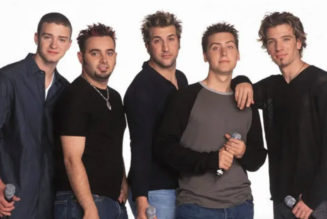
The idea of “wandering deeper” is fundamental to understanding Evermore, an album that masquerades as a sequel (or a Side B) at first glance, but reveals itself to be a more progressive, and even audacious, continuation of a proven aesthetic. She’s still relying on acoustic guitar, piano, string flourishes and programmed beats, but she also takes risks, musically and lyrically: there’s a heartbreaking ode to Swift’s grandmother (that features her archived background vocals from years ago), a skittering kiss-off that recalls mid-period Radiohead, and a swirling duet between Swift and Justin Vernon’s best Bon Iver falsetto that features a rare mid-song tempo change. Those are just the final three of the set’s 15 tracks, and they’re all breathtaking. If Swift seemingly pushed her songwriting to the limit on Folklore, its follow-up finds a new one.
The complexities of adult love are also explored more extensively on Evermore, particularly in its first half, when the folk arrangements created by Swift, Dessner and Antonoff serve as the stage for long-brewing hurt and soured unions. “Happiness” revels in post-breakup devastation, “Tolerate It” lets its resentment curdle in the response to a partner’s malaise, and “Champagne Problems” extends its gaze of a former flame moving on, a ring given to another when it shouldn’t have been. Fortunately, Evermore is smartly paced, with songs like the holiday hang-out “’Tis The Damn Season” and the delicious Haim collaboration “No Body, No Crime” offering hope and levity in the midst of the wreckage.
It’s hard to blame Swift for indulging in a sound that works so well for her: for the second straight album, she uses the intricacies of the production, concocted primarily alongside Dessner, to whir softly around her lyrical ideas, and flare up when necessary. Evermore both complements and expands upon Folklore, serving as one half of a whole but also standing on its own as the home of some of Swift’s boldest, most richly designed songwriting ideas. She’ll move on from this era at some point, but as the rest of us are still stuck in 2020 for a little while longer, we’re fortunate that Folklore-era Taylor has decided to linger around with us as well.










